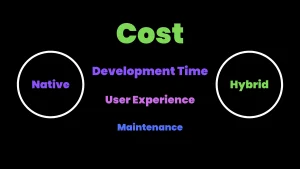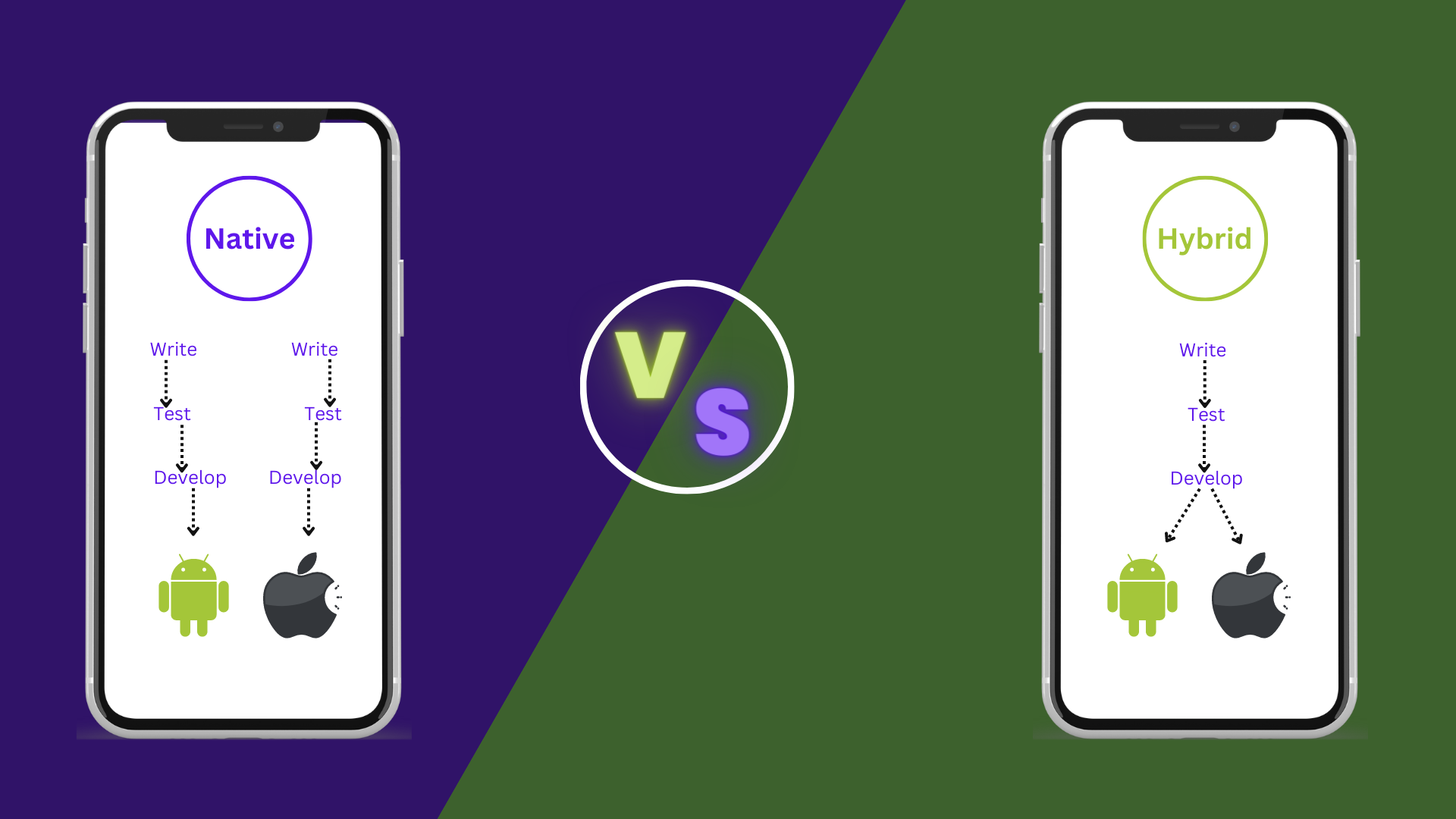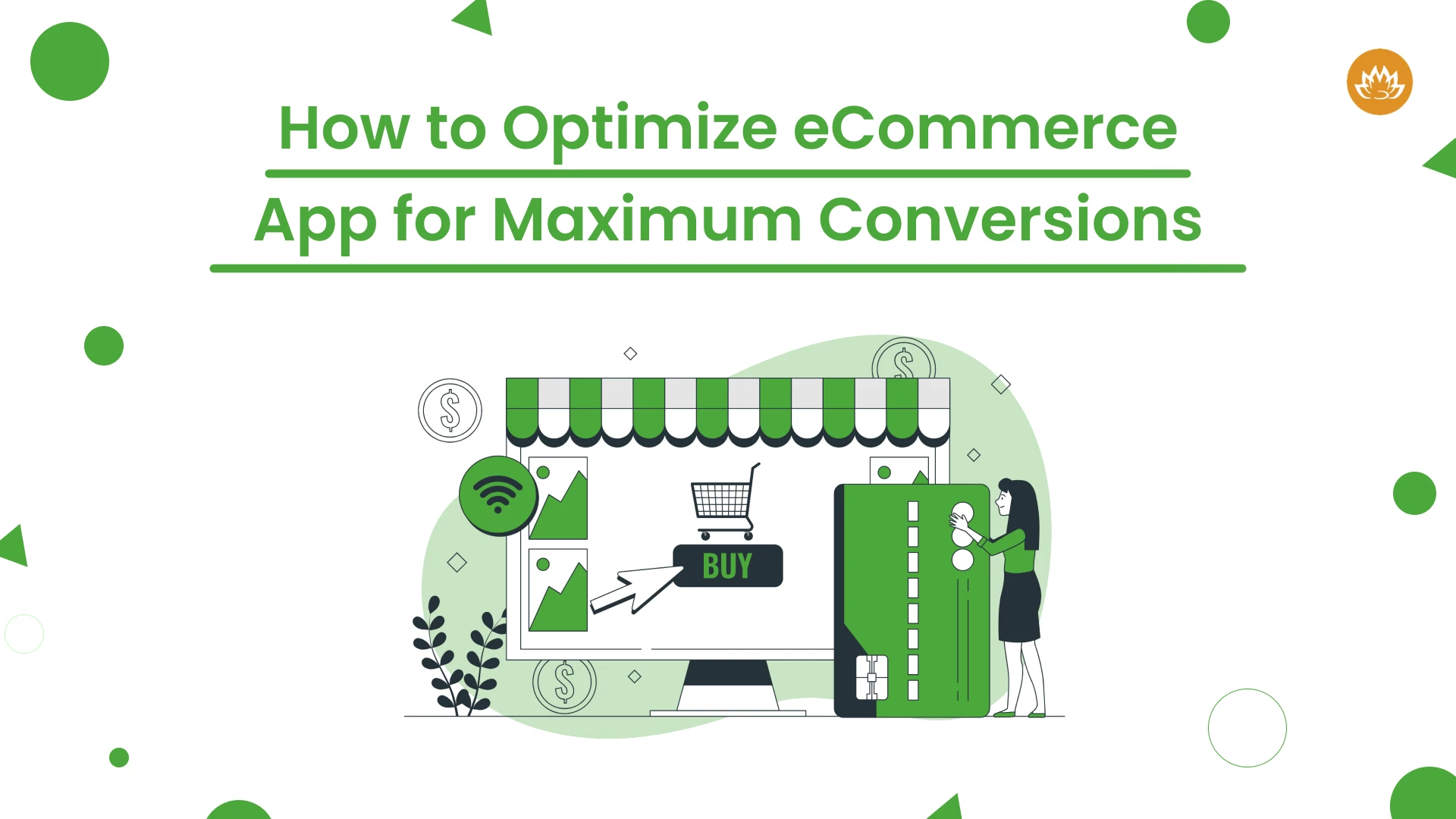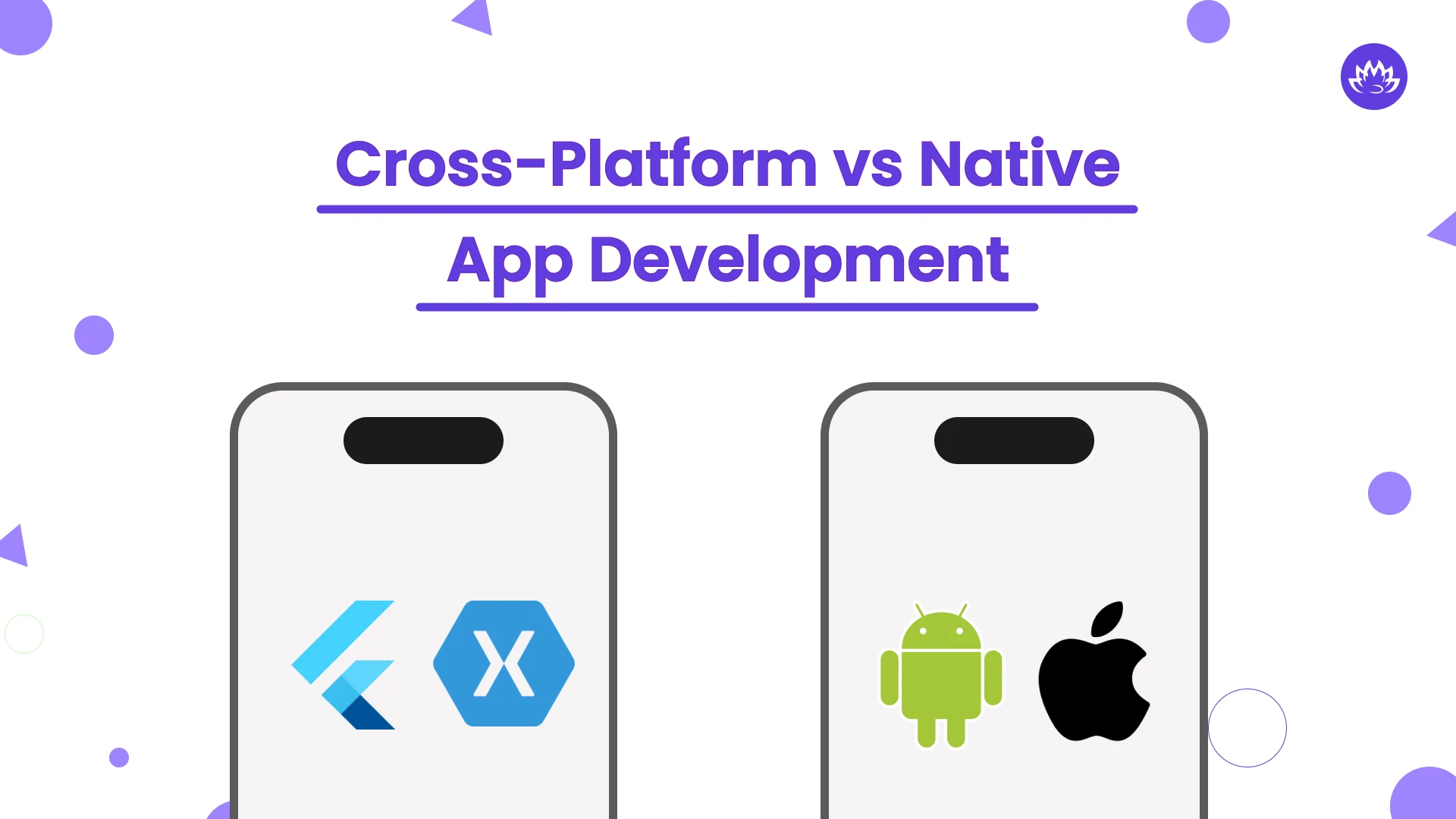With mobile devices becoming ubiquitous in the workplace, enterprise application development has become an essential component for companies seeking to streamline operations. But choosing between native or hybrid development can be daunting: Which path do we follow?
With enterprise application development company, businesses get assistance in making well-informed decisions regarding application needs. Each of the available native and hybrid development approaches has its own distinct set of advantages and disadvantages; choosing incorrectly can result in expensive mistakes.
In this article, we provide a thorough comparison between native and hybrid development approaches for enterprise app development. We’ll help you to understand their respective differences while offering insights as to which one might work best for your business – be it startups or established enterprises! Hopefully, this guide can assist in making informed decisions when it comes to enterprise app development.
Introduction To Enterprise App Development
Enterprise application development services have become an indispensable element of modern businesses, with organizations of all kinds needing tailored software solutions that streamline processes and increase efficiencies as their operations expand and contract. As enterprises look for innovative ways to expand and reduce operating expenses while remaining compliant, enterprise application development services have proven increasingly important as companies expand.
Enterprise app development involves designing applications specifically tailored to meet the requirements of an organization, with special consideration given to scalability, security and functionality requirements. Applications developed this way range from customer relationship management systems and supply chain tools all the way up to customer journey management tools – the possibilities are truly limitless!
With enterprise application development services from experienced vendors, companies can keep ahead of the competition by capitalizing on cutting-edge technologies and streamlining operations.
Native App Development – Definition and Benefits
Native app development refers to the creation of mobile applications specifically optimized for use on an operating system (OS) such as iOS or Android, using programming languages and tools specific to that OS and optimized to improve both performance and user experience. Enterprise app developers generally Favor native development because of its advantages.
Native app development stands out as being superior in performance to other forms of app creation due to being customized specifically to each operating system on which they run, taking full advantage of all hardware and software features to deliver a faster user experience.
Native app development also has many other advantages, including greater customization and integration with other services and applications. App developers can take advantage of unique OS features to craft apps tailored specifically for each user – this could include push notifications, camera access and location-tracking features that address their specific needs.
Native app development also provides greater security and reliability compared to other types of development methods, as native applications use programming languages and tools specific to each OS, thus being less vulnerable to security breaches and providing more excellent stability and dependability.
Native app development has quickly become the go-to solution for enterprise app development companies due to its many advantages – improved performance, customization, integration, security and reliability among others. When choosing native app development as the path of app creation for their users’ specific needs and providing superior user experiences.
Hybrid App Development – Definition and Benefits
The process of Hybrid app development brings in platforms that operate across different platforms including iOS and Android. With hybrid app development, businesses can build applications without investing in separate apps. This saves both time and money in developing efforts while streamlining development processes.
Hybrid app development enables companies to design apps with native-like looks while taking advantage of web technologies – providing for an improved user experience, performance boost and functionality enhancements.
Hybrid app development offers enterprises and app development firms unique advantages; it enables them to design apps which will work across devices and platforms while meeting all client-specific requirements and needs.
Comparison Between Native and Hybrid App Development

Here we’ll compare native versus hybrid development based on factors like costs, development timeframes, user experiences and maintenance needs.
Cost: Native app development typically is more costly than hybrid app development due to individual platform (iOS and Android) development needs; hybrid apps on the other hand may use one codebase for multiple platforms simultaneously.
Development Time: Native app development takes longer than hybrid app development due to each platform requiring independent development whereas hybrid apps can be developed simultaneously for multiple platforms and thus greatly shorten development times.
User Experience: Native apps tend to offer superior user experiences than hybrid ones due to being optimized specifically for each platform, taking full advantage of platform-specific features and capabilities. Hybrid apps may feel more like compromises between platforms than fulfilling experiences for either of the users, potentially leaving an unpleasant aftertaste behind.
Maintenance: Native apps typically require more maintenance than hybrid apps due to needing separate updates for every platform that require individual maintenance updates – an effort which consumes both time and resources. With hybrid apps, however, updates for multiple platforms at the same time reduce maintenance times and costs significantly.
So, both native and hybrid app development have their own set of advantages and disadvantages for businesses to weigh when selecting which development approach they’d prefer for their app projects, such as cost, development timeframes, user experience considerations and maintenance issues. Hiring dedicated developers can ensure businesses achieve optimal results from any mobile development endeavour regardless of which approach is chosen.
Factors to Keep in Mind When Selecting Native and Hybrid App Development Solutions
When making a choice between native and hybrid app development for your enterprise, several factors need to be taken into consideration. Primarily, native apps are tailored specifically for one platform like iOS or Android whereas hybrid ones work on multiple systems simultaneously – thus offering wider audience coverage through hybrid development compared to native development; but for superior user experiences on specific platforms native apps may provide better solutions.
Consider also the cost and time involved with app development. While native apps require separate development for each platform, which may take more time and cost. By contrast, hybrid apps can often be created more rapidly at lower costs as their single codebase makes development quicker and cheaper.
Consider which features and functionality your app requires before developing it. Native apps typically take advantage of accessing all device features like camera, GPS, accelerometer and microphone while hybrid apps may only gain limited access depending on their platform of development.
Last, it is essential that your development team possess a set of relevant skills. Native app development requires specific expertise; therefore, it may require to hire dedicated developers. Hybrid app development may be more accessible for developers with broader skill sets.
Overall, choosing between native or hybrid app development depends upon your unique requirements and goals. Careful consideration must be given to these factors while consulting experts about making an optimal choice for your enterprise.
Final Thoughts
Deciding between native and hybrid app development can be an intricate decision for enterprises. Both approaches offer their own set of benefits and drawbacks; ultimately the decision lies with your specific business needs and goals. Consulting a software development company for guidance in making this vital choice can offer invaluable assistance; furthermore, ensuring its execution with top quality and efficiency will contribute significantly towards project success. In summary, any enterprise app development project’s success rests upon careful thought, planning, and an intense dedication towards providing exceptional user experiences.
Also Read:
- Enterprise App Development: Top Use Cases, Benefits, and Future Scope
- Why Choose ReactJs For Your Enterprise Application Development in 2023?
Author
-

Kirtan is CEO of Whitelotus Corporation, an emerging tech agency aimed to empower startups and enterprises around the world by its digital software solutions such as mobile and web applications. As a CEO, he plays key role in business development by bringing innovation through latest technical service offering, creating various strategic partnerships, and help build company's global reputation by delivering excellence to customers.
View all posts












